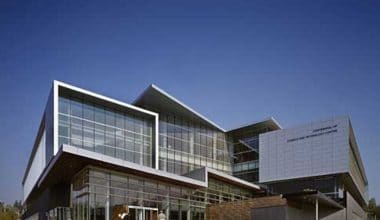This content is a troubleshooting guide that aims at the mystery behind your silent and still air conditioner. In this guide, we’ll go into the common reasons why your air conditioner may have decided to take an unexpected hiatus, we’ll also provide you with practical solutions to revive its refreshing functionality.
Table of contents
What’s The Major Cause Of Malfunction In Airconditioners?
One of the predominant causes of malfunction in air conditioners stems from inadequate maintenance and neglect. Over time, air conditioners accumulate dust, dirt, and debris, especially in crucial components such as filters and coils. When these contaminants build up, they obstruct proper airflow, forcing the system to work harder to maintain the desired temperature. This increased strain can lead to a range of issues, including reduced efficiency, higher energy consumption, and ultimately, system failure.
A neglected or clogged air filter stands out as a primary culprit in this scenario. Filters play a crucial role in trapping airborne particles, preventing them from entering the system. However, when these filters become clogged, they not only compromise air quality but also impede the free flow of air. As a result, the evaporator coil, responsible for absorbing heat from the air, can freeze due to restricted airflow. This, in turn, hampers the overall cooling process and may even cause the compressor to overheat, leading to a complete breakdown.
Furthermore, insufficient refrigerant levels contribute significantly to air conditioner malfunctions. Refrigerant is the lifeblood of an AC system, facilitating the heat exchange process that cools the air. Low refrigerant levels often result from leaks, which can occur in the coils or connections. When the refrigerant is insufficient, the system struggles to absorb and release heat efficiently, leading to inadequate cooling performance and, ultimately, system failure.
Electrical issues also play a pivotal role in air conditioner malfunctions. Faulty wiring, corroded connections, or issues with components like capacitors and contractors can disrupt the electrical flow within the system. This not only compromises the functioning of various parts but can also pose safety risks. For instance, a malfunctioning capacitor may lead to the compressor or fan motor failure, causing the entire system to cease operating.
Common Signs Of Malfunction In Air Conditioner
Warm Airflow:
If your air conditioner is blowing warm or room temperature air instead of the cool breeze you expect, it could be a sign of a malfunction. This might be attributed to issues with the compressor, refrigerant levels, or a malfunctioning thermostat.
Insufficient Airflow:
Reduced or weak airflow from the vents can indicate problems with the blower fan or clogged air filters. Restricted airflow not only affects cooling efficiency but also puts unnecessary strain on the entire system.
Strange Noises:
Unusual sounds like squealing, grinding, or banging could signify issues within the air conditioner. These may be related to problems with the fan, motor, or other internal components.
Frequent Cycling On and Off:
If your air conditioner is cycling on and off more frequently than usual, it could be a sign of an underlying problem. This might be due to issues with the thermostat, refrigerant levels, or even an oversized unit.
Water Leaks:
The presence of water around your air conditioner could indicate a blocked or malfunctioning condensate drain. A clogged drain can lead to water backup and potential damage to the system.
Foul Odors:
Unpleasant odors emanating from the vents could be a result of mold or mildew growth within the system. It’s essential to address this promptly for both air quality and system efficiency.
Ice Formation:
Ice forming on the evaporator coils is a clear sign of reduced airflow or refrigerant issues. This can lead to a frozen coil, hindering the cooling process.
High Humidity Levels:
If your air conditioner is not effectively controlling humidity levels, it may indicate a malfunction in the system. Proper functioning AC units should help maintain a comfortable indoor humidity level.
Thermostat Inaccuracy:
Inconsistent temperature readings or a thermostat that doesn’t respond correctly can point to problems with the thermostat itself or issues with the sensor and wiring.
Electrical Issues:
Flickering lights or tripped circuit breakers when the AC is running may suggest electrical problems within the system. This could range from faulty wiring to issues with capacitors or contractors.
Why Is My Air Conditioner Not Working & Solutions
- Dirty or Clogged Air Filter:
- Issue: A dirty air filter restricts airflow, reducing the efficiency of your AC.
- Solution:Replace or clean the air filter regularly, usually every 1-3 months, depending on usage.
- Low Refrigerant Levels:
- Issue: Low refrigerant can result from leaks, affecting the cooling capacity of the
system.
- Solution: Consult a professional to identify and repair leaks, then recharge the
refrigerant to the appropriate level.
- Faulty Thermostat:
- Issue: A malfunctioning thermostat can cause inaccurate temperature readings or
prevent the AC from turning on.
- Solution: Calibrate or replace the thermostat as needed to ensure accurate
temperature control.
- Electrical Issues:
- Issue: Problems like faulty wiring, capacitor issues, or a malfunctioning compressor
can lead to AC failure.
- Solution: Hire a qualified technician to inspect and repair any electrical issues within
the system.
- Frozen Evaporator Coils:
- Issue: Insufficient airflow or low refrigerant levels can cause the evaporator coils to
freeze.
- Solution: Address the root cause, such as cleaning/replacing air filters or fixing
refrigerant leaks, and allow the coils to thaw before restarting the AC.
- Blocked or Leaking Ducts:
- Issue: Obstructed or leaking ducts can lead to uneven cooling or a complete
breakdown.
- Solution: Inspect and repair ductwork, ensuring it is clean, sealed, and free from any
blockages.
- Malfunctioning Capacitor:
- Issue: Capacitor issues can affect the operation of the fan and compressor.
- Solution:Replace a faulty capacitor with the help of a professional HVAC technician.
- Issues with the Compressor:
- Issue: A malfunctioning compressor can result in warm air blowing from the AC.
- Solution: Consult a professional to diagnose compressor issues and replace it if
necessary.
- Thermostat Sensor Problems:
- Issue:A misaligned or faulty thermostat sensor can cause temperature control issues.
- Solution: Adjust or replace the sensor to ensure accurate temperature readings.
- Lack of Regular Maintenance:
- Issue: Neglecting routine maintenance can lead to various problems within the AC system.
- Solution: Schedule regular professional maintenance, including cleaning, lubrication, and system checks, to keep your AC in peak condition.
Regular attention to these potential issues and proactive maintenance can significantly reduce the chances of your air conditioner encountering problems, ensuring optimal performance and longevity.
How Often Should I Service My Air Conditioner?
Ideally, you should service your air conditioner annually. Regular maintenance helps ensure that your AC operates efficiently, extends its lifespan, and minimizes the risk of unexpected breakdowns. Key tasks during a routine service include cleaning or replacing air filters, inspecting and cleaning coils, checking refrigerant levels, examining ductwork for leaks or blockages, and verifying the overall functionality of the system.
If you use your air conditioner more frequently, such as in a hot climate or throughout the year, you might consider scheduling maintenance twice a year. This can be particularly important for systems that undergo heavy usage, as more frequent service intervals help address wear and tear promptly.
In addition to professional annual or biannual maintenance, there are tasks you can perform regularly, such as checking and cleaning or replacing the air filter every 1-3 months, depending on usage. Keeping the area around the outdoor unit free from debris and ensuring good airflow are also beneficial practices.
Remember that a well-maintained air conditioner not only operates more efficiently but also contributes to better indoor air quality and energy savings.
Frequently Asked Questions
Warm air from your AC could be due to issues like low refrigerant levels, a malfunctioning compressor, or a dirty air filter. It’s advisable to check and address these issues promptly.
Air filters should typically be replaced every 1-3 months, but this can vary based on usage and filter type. Regular replacement or cleaning is crucial for maintaining optimal performance.
While you can handle tasks like changing the air filter, more complex maintenance and repairs should be performed by a qualified HVAC professional to ensure safety and effectiveness.
A frozen coil is often due to restricted airflow or low refrigerant levels. To fix it, address the root cause, such as cleaning/replacing air filters or fixing refrigerant leaks, and allow the coils to thaw before restarting the AC.
Signs of a malfunctioning thermostat include inaccurate temperature readings, inconsistent cooling, or the AC not turning on/off as programmed. Calibrating or replacing the thermostat can resolve these issues.
Frequent cycling could indicate issues with the thermostat, refrigerant levels, or an oversized unit. Consult a professional to identify and address the root cause for more efficient operation.
It’s generally recommended to service your air conditioner annually. However, if you use it frequently, consider biannual maintenance to address wear and tear promptly.
It’s not advisable to use your AC if it’s leaking water, as this could indicate a clogged or malfunctioning condensate drain. Continuing use may lead to further damage; consult a professional for repairs.
To enhance energy efficiency, keep filters clean, ensure proper insulation, seal any leaks in ductwork, and consider upgrading to a programmable thermostat. Regular professional maintenance also contributes to efficiency.
Conclusions
Understanding the reasons behind your air conditioner’s malfunctions empowers you to take proactive steps in maintaining its optimal performance. By incorporating routine maintenance into your schedule and staying vigilant for common signs of trouble, you not only ensure a more comfortable living environment but also potentially save on energy costs and prevent costly repairs.
References
- howstuffworks.com – 5 Reasons Why Your Air Conditioner Stopped Working
- cielowigle.com – 13 Reasons Your AC Is Not Turning on & How to Fix Them
- jacobsheating.com – Why Is My Air Conditioner Not Working? 10 Possible Reasons
Recommendations
- Big is 10 Acres of Land? (Visual Examples for Comparison)
- How Many Months is 60 Days? (Explaining the Calculation Process)
- How Big is 5 Inches? 6 Items with Accurate Measurement
- How Long Are Menards Rebates Good For?
- How Tall Is All Might? Everything To Know About Hero Academia
- How Tall is Kevin Gates? Everything about the Rapper
- How Long Are HS Football Games? (Explained)
- How Tall is Trippie Redd? Everything About the Rapper





